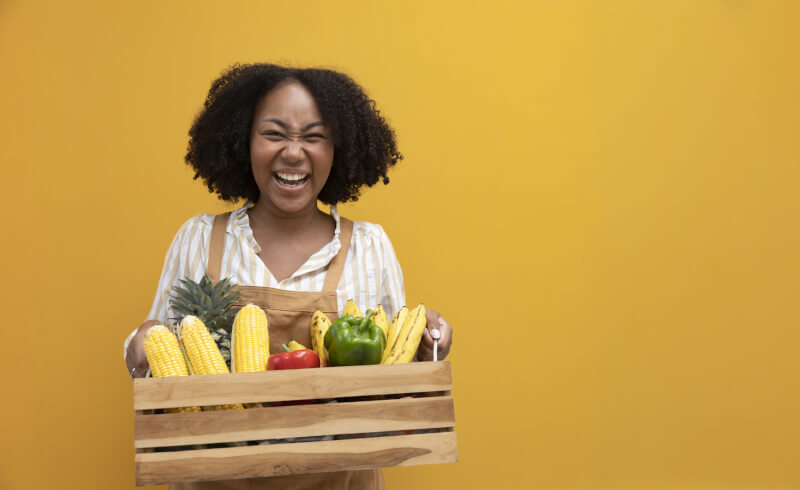As part of the collective effort to combat plastic pollution, this article offers pragmatic, easy-to-adopt solutions to significantly reduce single-use plastic in everyday life. Even minor adjustments can lead to monumental environmental impacts.
Changing habits might seem daunting, but each small step toward reducing plastic usage is a stride toward sustainability. You might wonder, can individual efforts make a difference? Absolutely! By reusing and recycling single-use plastics, you play a vital role in keeping them out of landfills and oceans. Incremental changes accumulate into major shifts over time.
You don’t need to start a huge compost pile to make a difference. Eco-conscious living can be simpler and just as effective. Gradually, these small changes become part of your daily routine, embedding you in the larger movement toward a greener future. The first step is awareness. Look around—your food packaging, household items, personal care products—are enveloped in plastic. Recognizing the omnipresence of plastic is the key to finding alternatives.
In the following sections, we will explore easy-to-implement, plastic-free solutions that can seamlessly integrate into your lifestyle, starting with your grocery habits.
Grocery Shopping
Wave goodbye to single-use plastic bags at the store. Embrace the freedom of showcasing your fresh produce, sans plastic. Remember, a thorough wash at home is all they need!
Alternatively, opt for reusable bags to keep your purchases organized. My personal favorites are the durable, washable, see-through mesh produce bags—they make checkouts a breeze and are a stylish statement of your environmental consciousness.
Always have a stash of reusable bags or sturdy totes handy for transporting your groceries home. This simple switch not only reduces plastic waste but also adds an element of chic to your shopping routine.
String Net Bags
I have a penchant for collecting canvas bags from different countries, turning each shopping trip into a global affair. But, if you’re looking for something unique, try adorable net string shopping bags. They are not only practical but also add a touch of whimsy to your market visits.
Glass Containers
Bulk buying doesn’t have to mean more plastic. Skip the plastic bags for your dry goods. Whether it’s granola or chocolate-covered almonds, glass containers are your go-to solution. They’re not just eco-friendly, but also add an aesthetic touch to your pantry.
Reusable Mesh Bags
These mesh bags are a game-changer for market trips. Compact and easy to scan, they are perfect for bundling up your market finds. Plus, they can go straight into the laundry, making them a convenient, eco-friendly choice.
Local Markets
Consider frequenting your local farmers’ market. Most goods there are free from the trappings of plastic packaging. While larger stores like Woolworths offer quality products, their plastic packaging can be excessive. Explore Community Supported Agriculture (CSA) in your area to support local farmers and enjoy fresh, plastic-free produce delivered right to your doorstep.
Shopping at farmer’s markets also means supporting local businesses—a win-win for the community and the environment.
Home-Made Alternatives
The secret to reducing plastic in household items lies in DIY solutions. Making vegan milks, pestos, hummus, and salad dressings not only cuts down on packaging but also adds a personalized touch to your meals. Store these creations in glass containers, which are not just plastic-free but also elevate your kitchen’s aesthetic.
Tea bags
Many are unaware that the adhesive in tea bags often contains plastic elements. This makes them less biodegradable and environmentally unfriendly. My recommendation? Pukka tea bags. They are of excellent quality and completely plastic-free, ensuring your tea time is both delightful and eco-friendly.
Eco-Friendly Personal Care
The bathroom is another hotspot for plastic. From toothbrushes to floss, it’s filled with single-use plastics. Opt for biodegradable dental floss, like Dental Lace, which offers a subscription service for convenience. Switch to David’s toothpaste in a metal tube or toothpaste in glass containers or tablet form for a near-plastic-free dental hygiene routine.
Sustainable Cotton Swabs
Common cotton swabs or Q-tips often have plastic handles, contributing significantly to plastic waste. Choose biodegradable alternatives to make this everyday item environmentally friendly. Skincare products are frequently packaged in plastic. Make a conscious choice to avoid these brands. Opt for products in glass containers or made from recyclable materials. Some companies have transitioned to glass containers with plastic lids, a move in the right direction. Additionally, programs like Terracycle offer recycling options for various brand packaging, further reducing your environmental footprint.
Invest in a metal razor with replaceable blades. It’s more cost-effective and environmentally friendly in the long run compared to disposable razors. For hair care, Terra Ties offers completely biodegradable and plastic-free hair ties, a small but significant step in your eco-journey. Seek out plastic-free deodorants like Native, which come in paperboard packaging and are free from harmful chemicals like aluminum and parabens.
Bathroom Essentials
Consider replacing single-use shampoo bottles with reusable ones or using a shampoo bar that leaves no residue. For menstrual products, menstrual cups like Luna Cup, OrganiCup, and Saalt offer a reusable and hygienic alternative to traditional products. They are easy to use, can be worn for extended periods, and are simple to clean and reuse. Period underwear, such as Thinx, provides an innovative and waste-free option, comfortable and effective for menstrual management.
Kitchen Innovations
In the kitchen, replace plastic wrap with eco-friendly alternatives like reusable beeswax paper. Stasher Bags, a versatile solution for storing food, is an excellent substitute for plastic Ziploc bags. They are not only cost-effective in the long run but also less harmful to the planet. For leftovers, switch to glass containers or jars like Mason jars for an eco-friendly storage solution.
Stainless Steel Containers and Beeswax Twine
Stainless steel containers are perfect for keeping cold foods chilled and are dishwasher-safe for convenience. Beeswax twine is a sustainable food wrap, that maintains freshness without the need for disposable plastics. It can be reused by simply washing with mild soap and cold water.
Organizing with Silicone Bags
Silicone organizing bags are a colorful and versatile alternative to plastic baggies. They are reusable, available in various sizes, and safe for oven, freezer, and dishwasher use.
One of the simplest yet significant changes you can make is switching to biodegradable waste bags. These bags are plant-based, decompose naturally, and hold certifications for compostability in both the United States and Europe. Available in various sizes, they are an easy swap for traditional plastic trash bags, greatly reducing your environmental footprint.
Consider the impact of single-use plastic water bottles. Opting for reusable water bottles is a straightforward and effective way to reduce plastic waste. Brands like Hydro Flask not only eliminate the need for disposable bottles but also keep your drinks at the desired temperature. Similar to water bottles, reusable coffee cups are an excellent way to cut down on single-use plastics. While some establishments may have restrictions due to health and safety concerns, many encourage the use of personal mugs. These cups are not just eco-friendly; they also add a personal touch to your daily coffee ritual.
Ditching Plastic Straws and Utensils
Join the movement against plastic straws by opting for alternatives made from stainless steel, silicone, or bamboo. Always carry a personal straw and a set of portable cutlery to avoid single-use plastics when dining out. This small act is a significant step towards reducing your plastic consumption. For preserving food and leftovers, ditch the plastic wrap for reusable beeswax paper, an eco-friendly and effective alternative. For additional storage solutions, stainless steel containers and glass jars like Mason jars are excellent for keeping food fresh without contributing to plastic waste.
While it may seem daunting at first, adopting these eco-friendly practices becomes second nature over time, significantly reducing your environmental impact. Whether it’s switching to biodegradable waste bags, using reusable beverage containers, or choosing sustainable food storage options, each decision you make is a step towards a cleaner, greener planet.
Like this article on eco-friendly alternative? Feel free to visit our eco-friendly guest post services on Fiverr, were we can help you get your eco-friendly brand into high-quality sites and content that alignes with your brands message.
Written By Danielle ( Our Eco-Friendly Content Writer)




